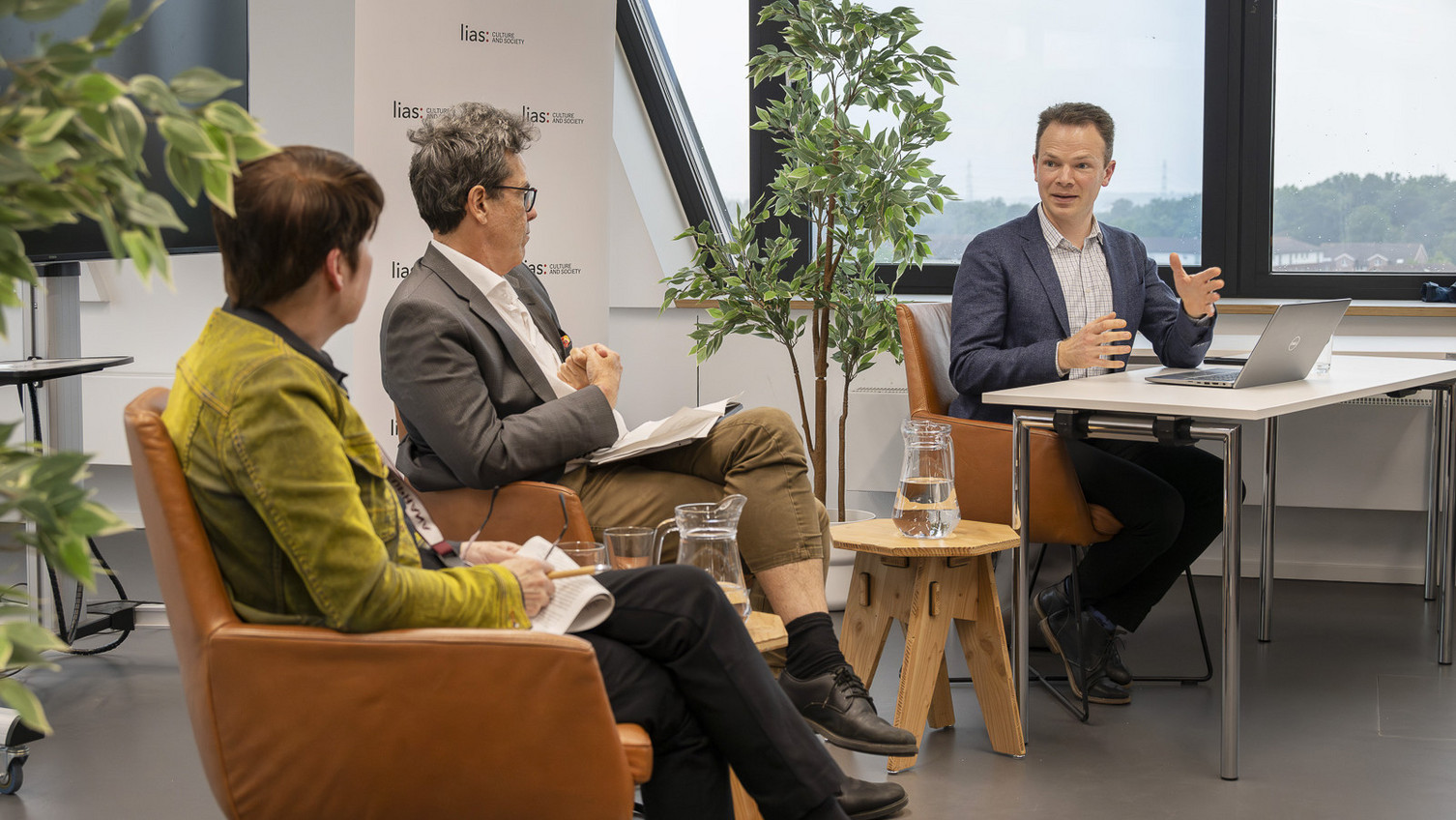The colonial roots of the social sciences
The Rise of Social Sciences: British India as a laboratory of Comparative Knowledge 1780-1900
2024-06-07 In a panel discussion at LIAS, philosopher Gildas Salmon faced his research on the transfer of knowledge from colonial India by the British in the emergence of modern comparative social sciences to critical questions from LIAS Senior Fellows Rosalind Morris and Richard Drayton
In a talk with Senior Fellows Rosalind Morris and Richard Drayton, Gildas Salmon, lecturer at the French National Centre for Scientific Research in Paris, spoke about the colonial context of the emergence of the social sciences. According to Salmon, it was neither curiosity nor a cultural thirst for knowledge that aroused British interest in Bengali culture in the 18th century. Rather, science was imperial from the outset in the sense that it arose from the attempt to recognise other societies as societies to be able to control them. According to Salmon, there is a close connection between the political practices of colonial imperialism and the emergence of comparative scientific disciplines. Colonial access to indigenous knowledge was the prerequisite for the introduction of research programmes to objectify non-European cultures. The associated political philosophy with practical intentions also made the human sciences possible.
But why, asked Gildas Salmon in his lecture, was British India such an important laboratory for state colonialism, even though it was a relatively late colony? It was mainly for economic reasons, because before the Industrial Revolution, Bengal was a centre of the world economy, which led to a rebalancing between Europe and Asia. In addition, the East India Company was dependent on the people of India due to a lack of manpower, so there was a “moderate” colonialism that was based more on the indirect domination of colonised people and their resources rather than on colonisation and land acquisition.
In fact, according to Gildas Salmon's thesis, the appropriation of Asian knowledge made it possible to transcend the boundaries of European rationality and to use Asian knowledge to look at oneself instead of creating a European knowledge of Asia from an already existing comparative scientific perspective. Here Salmon contradicts Edward Said, who had elaborated the idea that the Orient was a mere invention of the West.
In his lecture, Gildas Salmon finally drew an arc from comparative linguistics – the relationship between Sanskrit, Greek and Latin from a common linguistic source is due to the theoretical achievement of Indian grammarians – to comparative religious studies and ethnology through to economics. This appropriation of knowledge allowed the British to turn away from the orientalist policy of the East India Company during the 19th century. India began to modernise according to its own laws in tax policy and legislation, without questioning the epistemological assumption of India's otherness. One example, according to Gildas Salmon, is the concept of moral economy, which binds the economy in India to social solidarity, while at the same time protest against the logic of the market arises in Europe.
Gildas Salmon concluded that Edward Said's model had led us down the wrong path: It was not the West that created the East, but the West that primarily learnt something about itself. Salmon therefore sharply criticised the idea that there was an “oriental” and a “real” knowledge. According to Salmon, the criticism of imperialist social sciences must even be radicalised so that the exploitative nature of colonialism is not trivialised in the field of science: “The most fruitful way to combat ethnocentrism is to recognise the hybrid formation of knowledge.”
In her response, Senior Fellow Rosalind Morris asked what significance this history had for other parts of Asia. Morris based her critique of early comparativism on the argument that it amounted to a fetishism of values, particularly in the context of Henry Maine's (1822-1888) critique of private property, as this is what created the link between the social sciences and the political capitalist economy. It could even be that these techniques of comparison were spread by the colonisers themselves, who were stationed in various colonies during their careers, and therefore the origin of the social sciences lies in capitalist circulation and not in the specific generation of knowledge in colonial India.
Richard Drayton saw the construction of the social sciences in India generally as a question of the encounter between America, Africa and the Pacific. This generated the question of what it means to be European. The role of these encounters for the social sciences had to be considered. America, according to Gildas Salmon's answer, was the site of the triumph of individualistic forms of knowledge, which was ultimately reversed as a reaction in India.





